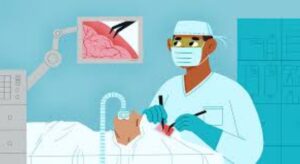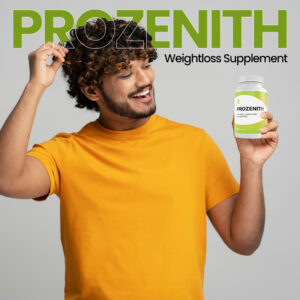Zinc for Immunity and Wound Healing: A Vital Mineral
Zinc is a trace mineral that plays a critical role in multiple bodily functions, especially in supporting the immune system...
Zinc is a trace mineral that plays a critical role in multiple bodily functions, especially in supporting the immune system and facilitating wound healing. Though required in small amounts, zinc’s impact on health is substantial. From fighting infections to repairing damaged tissues, this mineral helps keep the body strong, resilient, and functioning at its best.
Peanex Tablet is a nutritional supplement designed to support overall health by addressing specific vitamin and mineral deficiencies. It is commonly used to enhance immunity, promote bone health, and improve skin and hair conditions.
Let’s explore the importance of zinc, how it works, and how you can ensure you’re getting enough of it daily.
Zinc and the Immune System
One of zinc’s most important roles is supporting the immune system. It helps the body produce and activate white blood cells, particularly T-cells, which are essential in fighting off bacteria, viruses, and other pathogens.
- Promotes immune cell production: Zinc helps generate immune cells and regulate inflammation.
- Antiviral properties: Studies show that zinc can reduce the duration and severity of the common cold.
- Protects against oxidative stress: Zinc acts as an antioxidant, reducing damage caused by free radicals.
People who are zinc-deficient are more susceptible to infections, especially respiratory illnesses.
Zinc’s Role in Wound Healing
Zinc is crucial for skin repair and the healing process of cuts, burns, and surgical wounds. It aids in:
- Cell regeneration: Zinc supports the growth of new tissue and skin cells.
- Collagen synthesis: Collagen is vital for skin structure and wound closure.
- Inflammation control: Zinc helps reduce excessive inflammation during the healing process.
That’s why zinc-based creams or ointments are often recommended for minor wounds, rashes, or skin irritations.
Other Health Benefits of Zinc
While its main claims to fame are immunity and wound healing, zinc also contributes to:
- Enzyme function: Zinc is involved in over 300 enzyme reactions in the body.
- DNA and protein synthesis: It helps the body grow and repair tissues.
- Sense of taste and smell: Zinc deficiencies can impair taste and smell.
- Growth and development: Adequate zinc is crucial for children’s physical and neurological development.
How Much Zinc Do You Need?
The recommended daily intake varies by age and gender:
- Men: 11 mg per day
- Women: 8 mg per day
- Pregnant women: 11–12 mg per day
Zinc needs may be higher in people who are under stress, ill, or recovering from injury or surgery.
Sources of Zinc
You can get zinc from both animal and plant-based foods, although it’s more easily absorbed from animal sources.
Animal-based sources:
- Red meat (beef, lamb)
- Poultry
- Shellfish (especially oysters, crab, and lobster)
- Eggs and dairy
Plant-based sources:
- Legumes (chickpeas, lentils, beans)
- Nuts and seeds (pumpkin seeds, cashews)
- Whole grains
- Fortified cereals
If you’re on a vegetarian or vegan diet, you might need more zinc due to lower absorption from plant foods.
Zinc Deficiency: What to Watch For
Zinc deficiency can lead to:
- Frequent colds or infections
- Slow wound healing
- Loss of taste or smell
- Hair loss
- Skin rashes or acne
- Fatigue and poor concentration
Those at higher risk include older adults, people with digestive issues, vegetarians, and those with chronic illnesses.
Can You Take Too Much Zinc?
Yes. While zinc is essential, excessive intake (usually through supplements) can lead to:
- Nausea or vomiting
- Stomach cramps
- Headaches
- Reduced copper levels (leading to anemia)
- Weakened immunity over time
Stick to recommended amounts unless advised by a healthcare provider.
Conclusion
Zinc is a powerhouse mineral that supports immune function, promotes wound healing, and contributes to overall wellness. Ensuring your diet includes zinc-rich foods — or taking supplements when needed — can help you stay healthy, recover faster, and fight infections more effectively.






